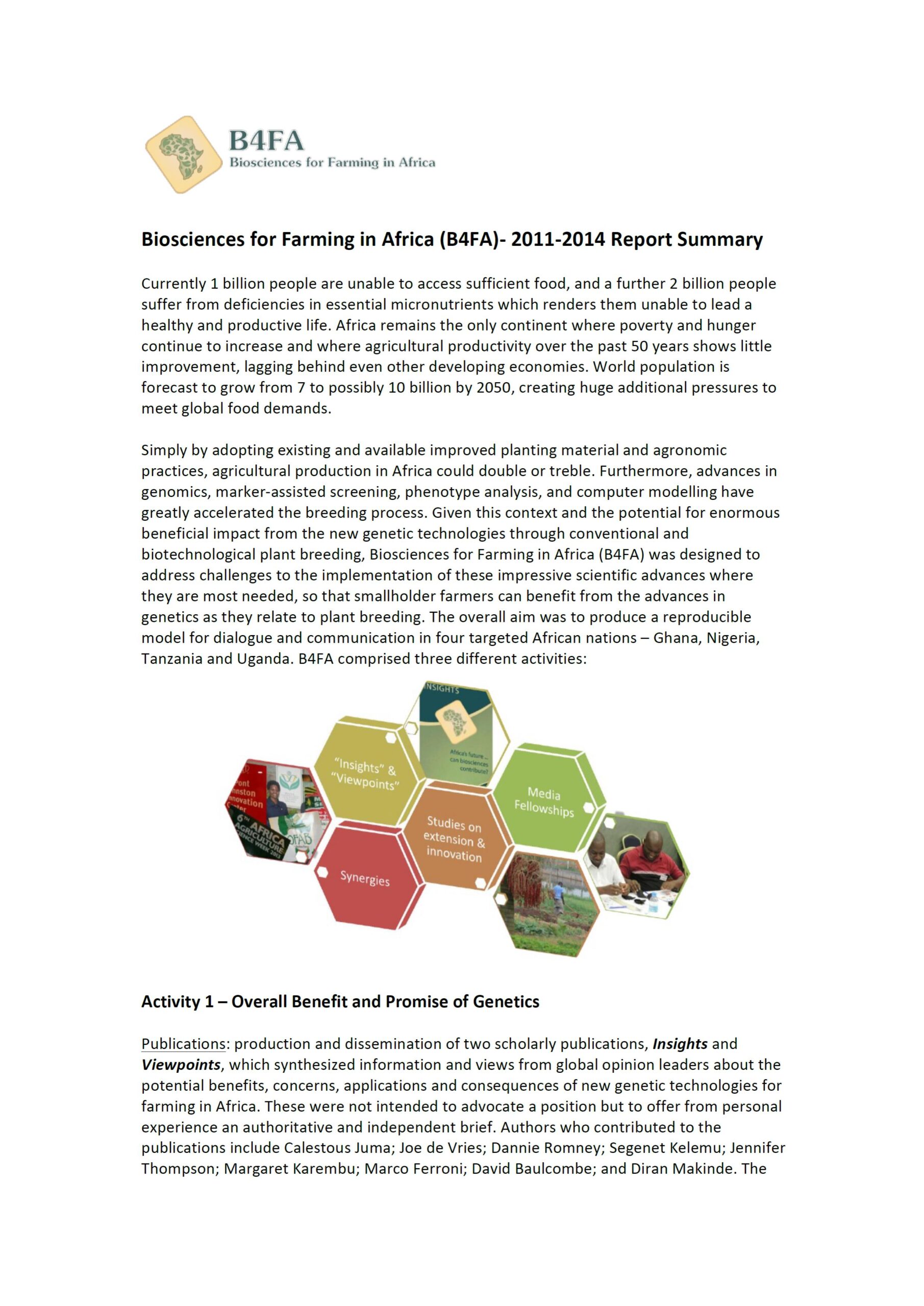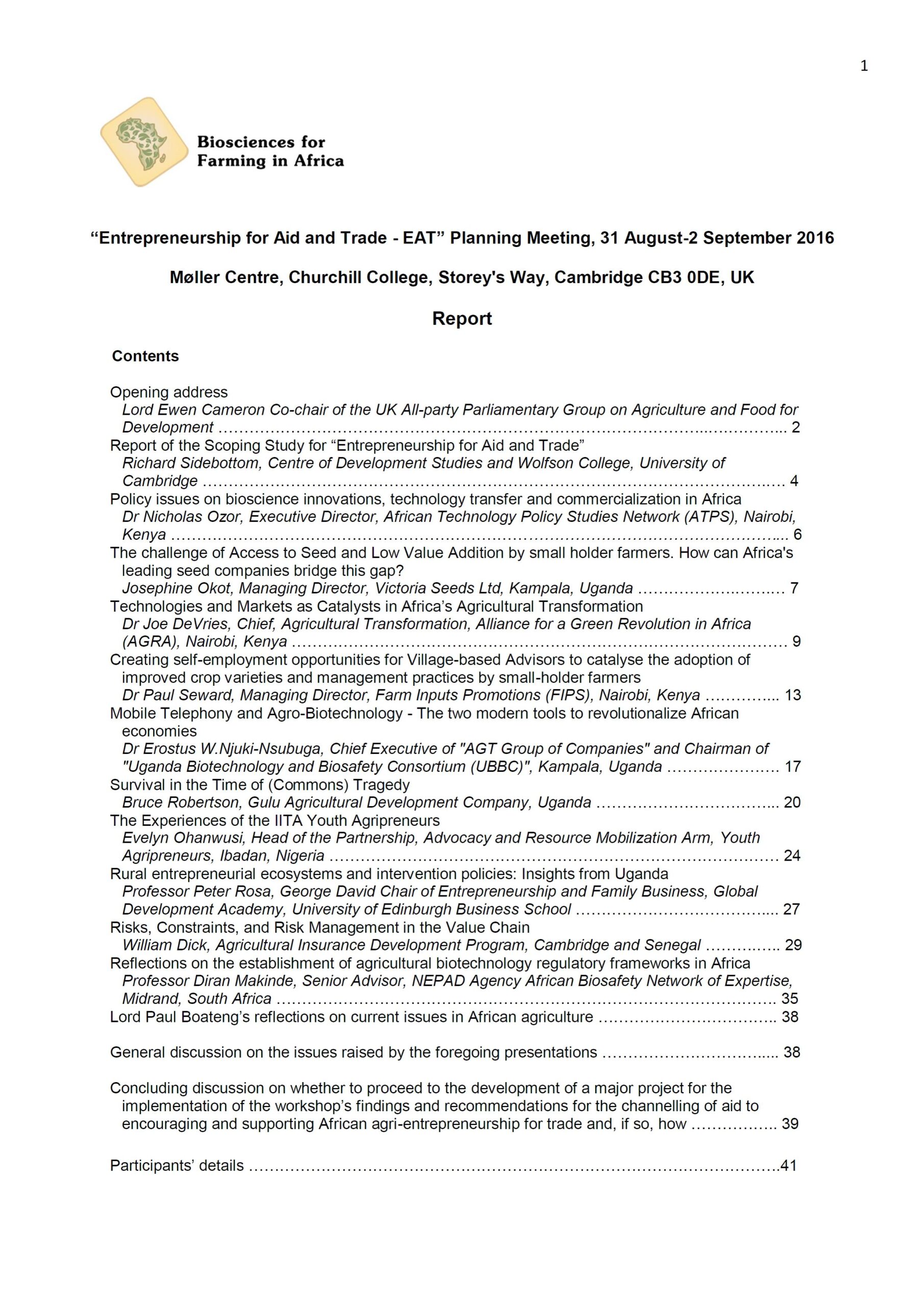STI4D helped Cambridge Biomedical Consulting ltd deliver the successful B4FA project, details of which can be found below. In particular, STI4D was responsible for the successful delivery of the B4FA Media Fellowships programme, featured on a separate project page on this website.

Rationale World population is forecast to grow to 9 billion by 2050. Meeting the needs of this projected global population will require a massive increase in food production. This is a huge challenge, but there are also many opportunities. In Africa, poor quality planting material and depleted soils have kept farmers’ yields at one-quarter of the global average. Less than one-quarter of African farmers use high yielding, locally adapted seed. Just by applying existing and available agricultural advice and technologies, the productivity of African agriculture could double or treble. And new technologies are being developed. No single solution will solve this problem, but in view of the stakes involved all existing tools to improve agricultural productivity deserve careful consideration, and should be made available for farmers to make use of them. Africa is a continent of immense richness; this wealth needs to be harnessed.
Activities The aim was to produce a model for dialogue and communication in African nations – Ghana, Tanzania, Nigeria and Uganda – selected on their willingness to engage in the adoption of new agricultural techniques and technologies to address food security and economic development, and because of their diverse regional climatic and soil differences. Success here could serve as a model for wider application.
Activity 1 – Overall Benefit and Promise of Genetics. Production of scholarly publications, linked to a dedicated website, which synthesizes information and views from global opinion leaders about the potential benefits, concerns, applications and consequences of new genetic technologies for farming in Africa; audiences will particularly be policy makers, regulators, and governments , but also media, teaching and research institutions, famers’ organizations and the general public. Although support for the website has now come to an end, the publications can be found here.
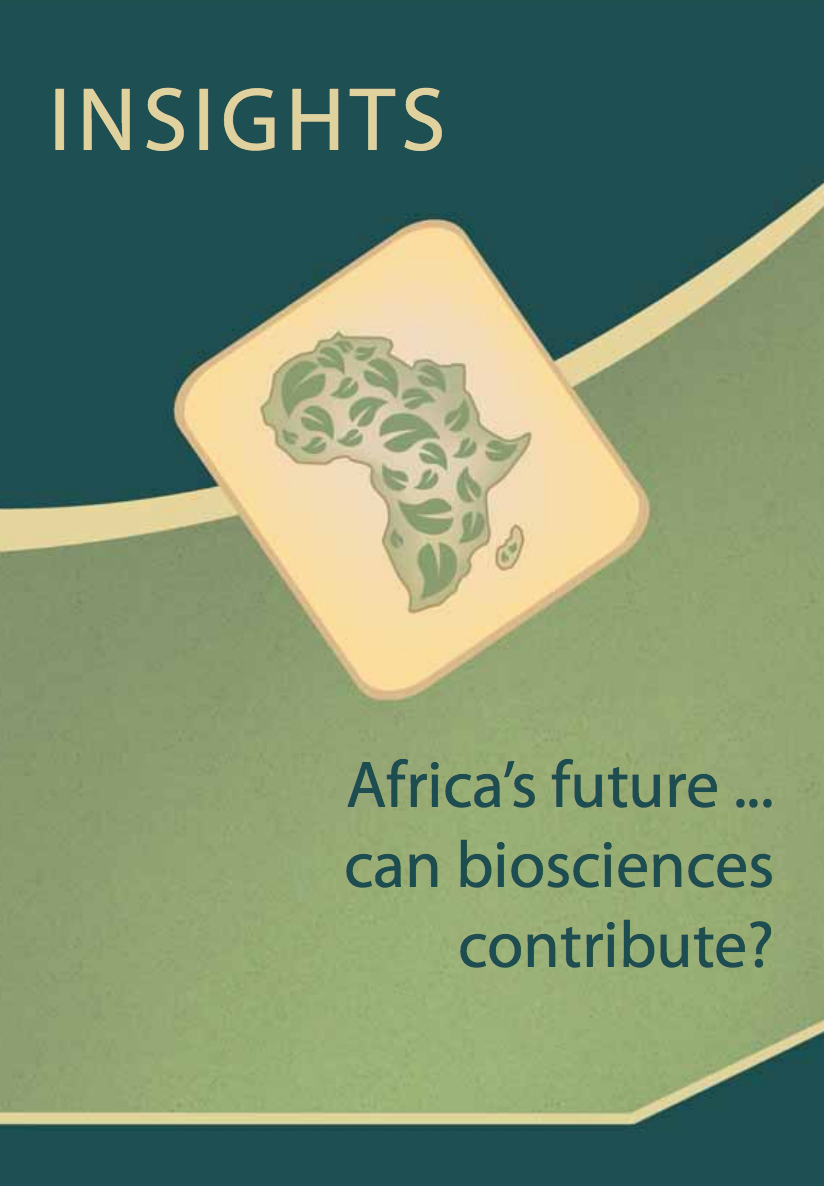
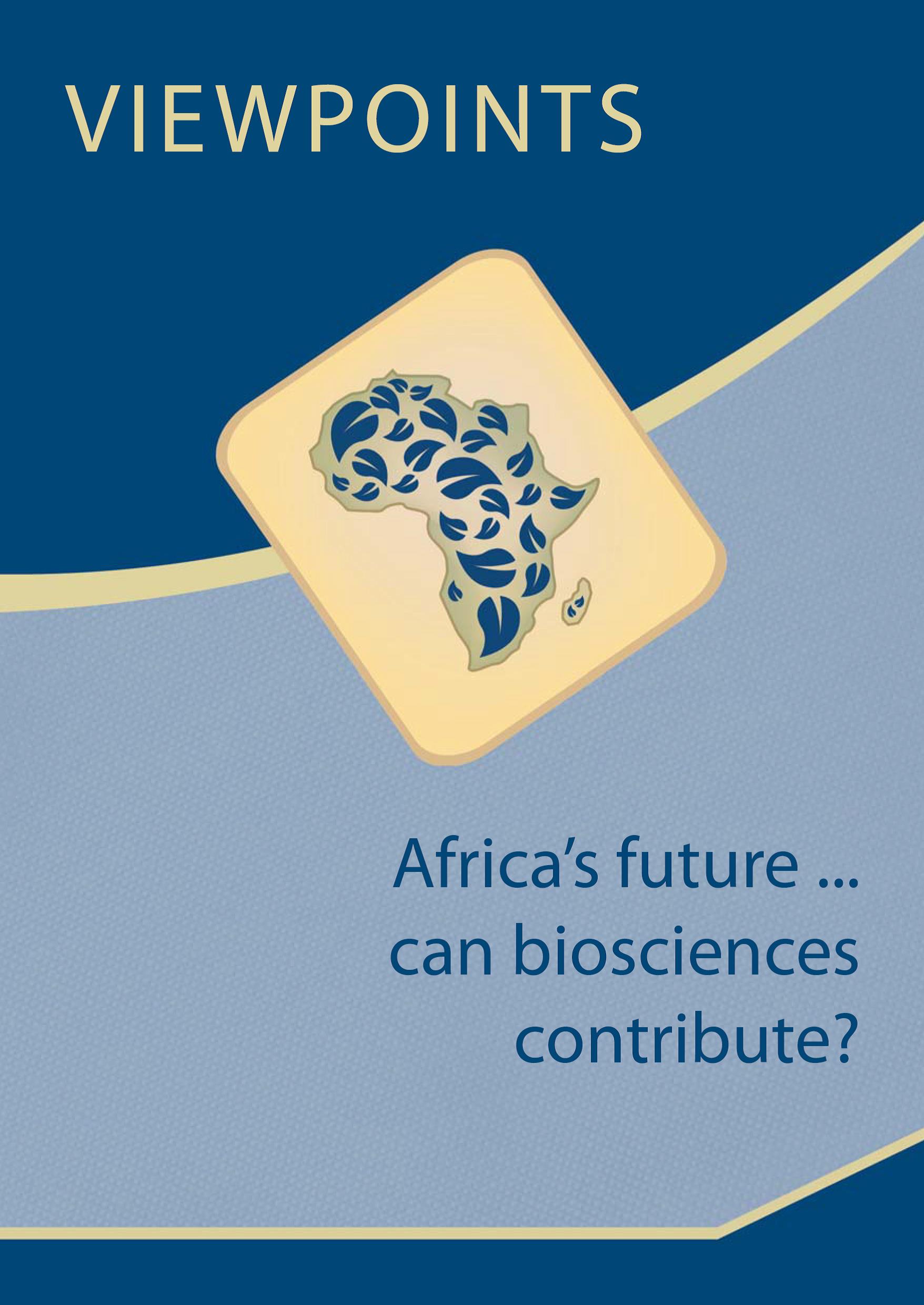
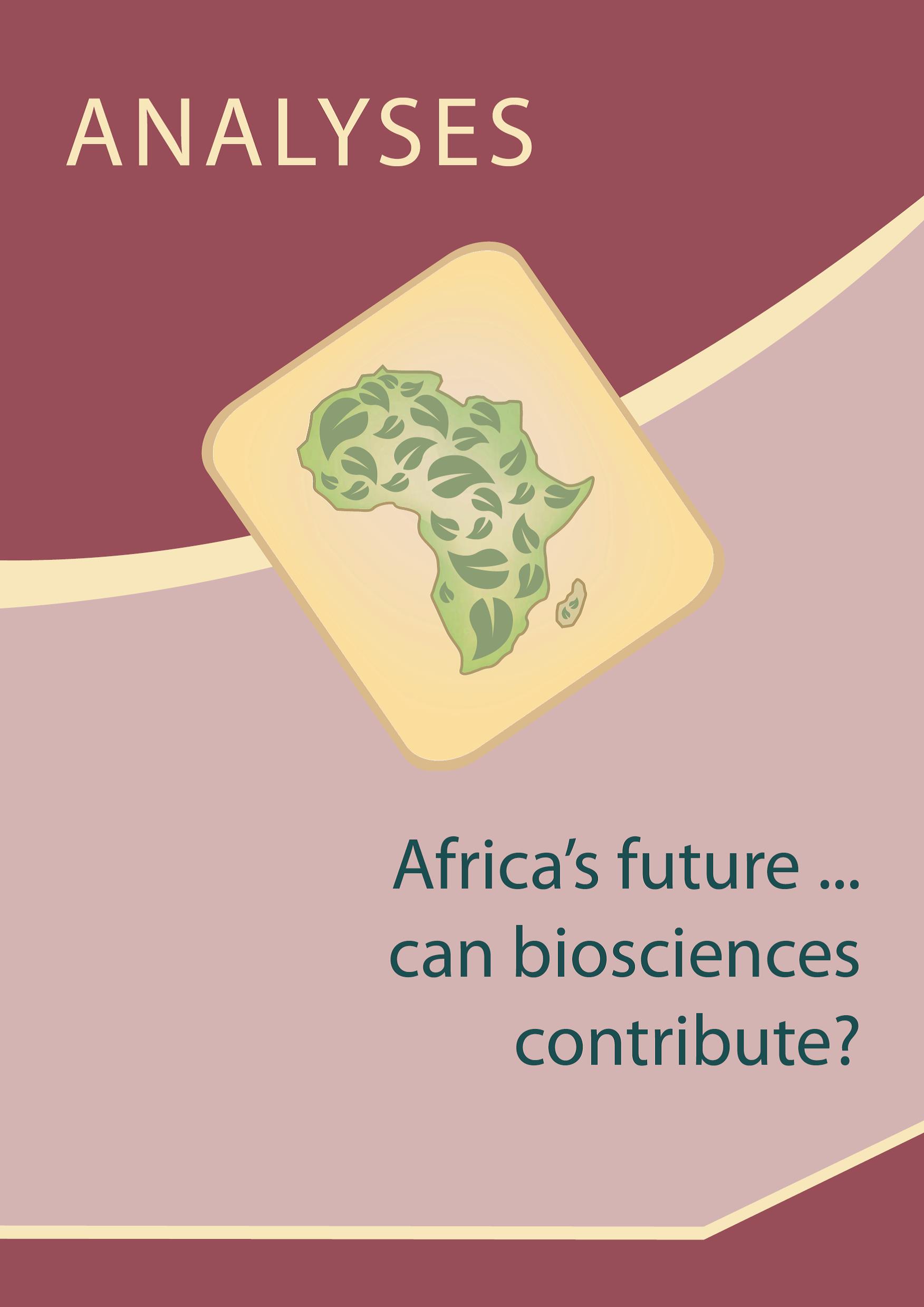
Activity 2 – Effective Communication of Genetics and Agricultural technology. A professional development Fellowship on modern techniques of crop breeding, genetics and agricultural technologies for media professionals. Journalists and editors from radio, television, newspapers and online outlets were enrolled, by competitive application, in a Fellowship programme that offered technical training combined with field-visits, mentoring, support, and long-term networking amongst the Fellows, and between them and the research community of their country
Activity 3 – Strengthening and Enabling Implementation. Scoping studies of how to strengthen extension services that deal with an enterprise culture through application of the new technologies of plant breeding genetics (eg hybrid breeding, marker-assisted selection, transgenic breeding) as well as other socio-economic studies. Extension officers provide the crucial link between the knowledge-base in institutions that hold the intellectual know-how, and small-scale farmers.
Funding The project was funded by the independent John Templeton Foundation and Malaysian Commonwealth Studies Centre & Cambridge Malaysian Education and Development Trust for a period of six years beginning in July 2011.
STI4D had involvement throughout the project, but in particular had responsibility for designing and delivering the media Fellowships in Activity 2. These Fellowships involved a highly innovative and successful approach to technical training and engagement of the media. Working with 160 media professionals across the four countries, the engagement delivered 13 training workshops, networking with more than 70 local researchers, and facilitated the production of more than 1500 high quality pieces of informed reporting of African agricultural bioscience during the active portion of the Fellowship programme. For more information on the Media Fellowships, please click here.
The B4FA youtube channel can still be accessed at https://www.youtube.com/channel/UCgKYbnWbaORY9g-iJWcEIig
The B4FA project was subsequently extended to include a follow-up workshop and additional publications. Final reports of the projects and workshop can be found here.

